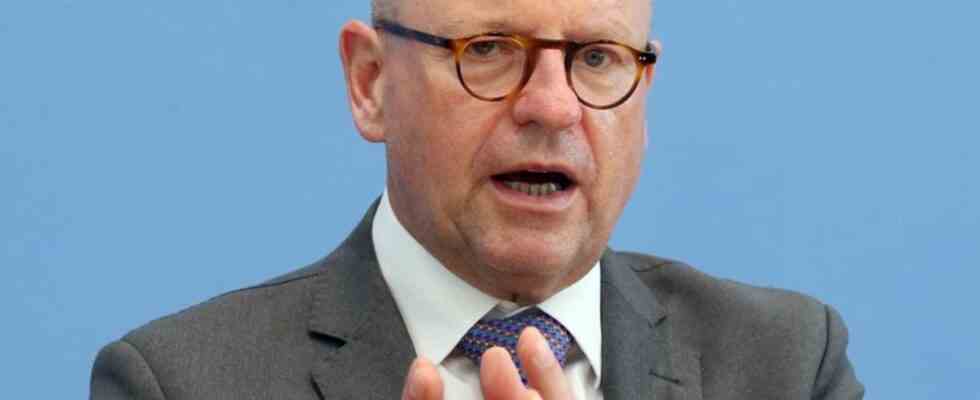migration
City day demands refugee summit: too few sleeping places
City Day President Marcus Lewe draws attention to problems in the accommodation of refugees. photo
© Wolfgang Kumm/dpa
The City Day expects an increase in refugees from Ukraine and other countries of origin in the winter months. A dispute has now broken out over the distribution and reimbursement of costs.
In view of the bottlenecks in accommodation, the German Association of Cities has asked the federal government to convene a new refugee summit with the federal states and local authorities as soon as possible. A fair distribution must then be discussed there, said the President of the municipal umbrella organization, Mayor Markus Lewe (CDU), the dpa.
There is also an urgent need for discussion with regard to the necessary increase in the reception capacities of the federal states and the question of appropriate reimbursement of costs.
From the City Day’s point of view, it is alarming that more and more federal states are allowing themselves to be blocked for taking in Ukrainian war refugees. As a result, the distribution of refugees no longer works, said Lewe. It is important that the federal government intervene quickly in a coordinating manner. According to information from the Federal Ministry of the Interior, 9 of the 16 federal states have activated a block in the initial distribution system.
Bad prospects for the winter months
The City Day expects that the number of refugees from Ukraine will increase with the onset of the cold season. In addition, it is foreseeable that some Ukrainians who are already in Germany will no longer be able to stay in private households and will then have to be accommodated by the state.
At the same time, the number of asylum seekers and refugees from other countries of origin is increasing. Lewe predicted: “In the coming winter, a number of cities will again have to accommodate refugees in hotels, gyms or other facilities.” The places in schools and day-care centers are also not enough for the foreseeable future.
The President of the Association of Cities also recalled “the promise made by the federal and state governments in April to review and adjust cost reimbursement if the need increases”. In April, the federal and state governments agreed that war refugees from Ukraine would receive basic state security from June 1st, i.e. the same benefits as Hartz IV recipients.
At a refugee summit in the Chancellery on April 24, in which the leading municipal organizations also took part, the main focus was on school places and additional efforts to better integrate people who fled the Russian war of aggression in Ukraine.

